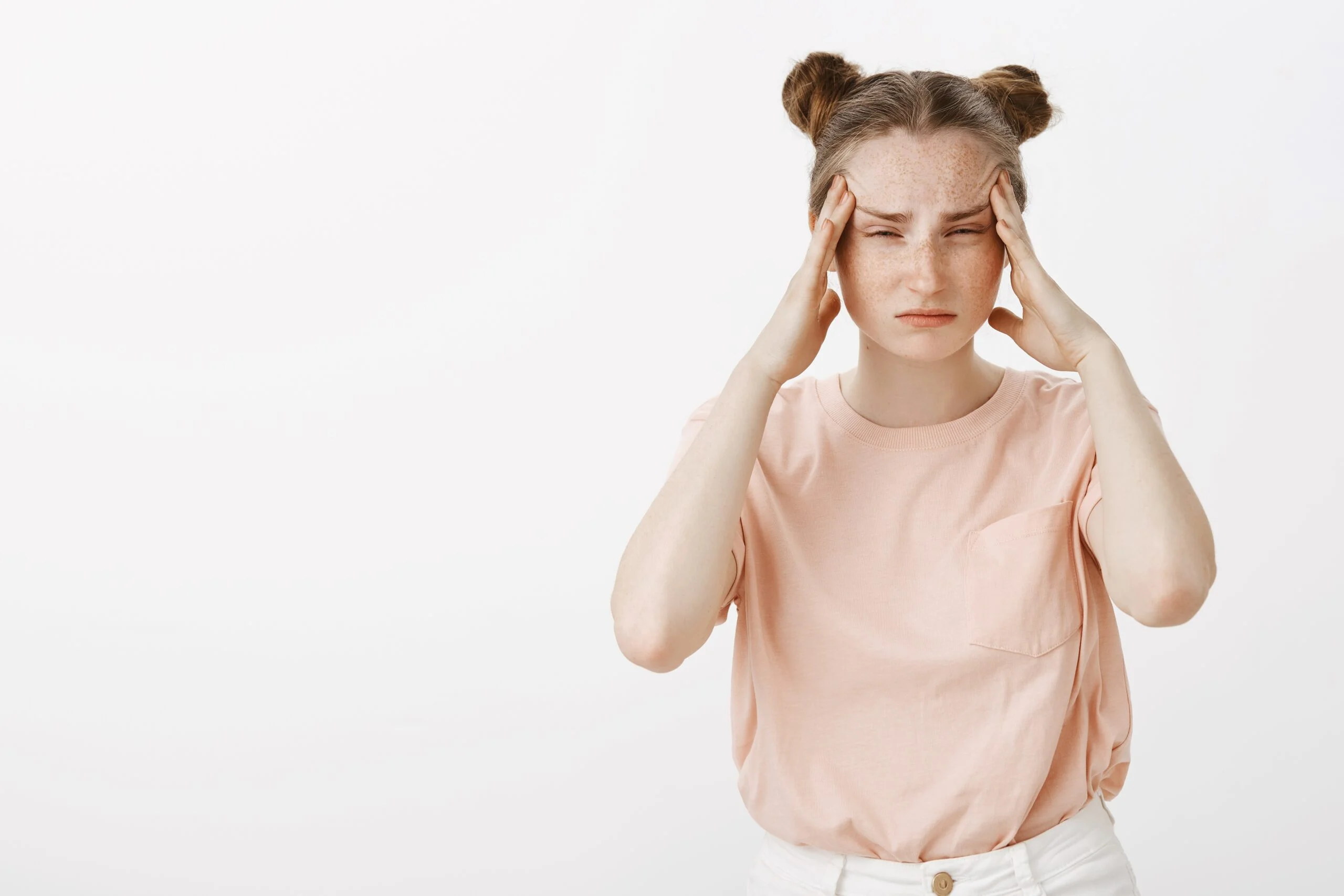
Anxiety is a feeling you get of unease, worry or fear and can be mild, really strong or anywhere in between. Anyone can be affected by anxiety, even the most confident appearing people. You can feel anxious about lots of different things such as sitting an exam, going to new places, meeting new people or worrying about the relationships you have.
When you feel anxious you can feel lots of different things happening to your body, which could include:
- Increased heart rate
- Shakiness
- Feeling nauseous
- Sweating
- Dilated pupils
- Feeling tense
- Shortness of breath
- Feeling hot and
sweaty.
The symptoms can feel really scary and distressing but remember that these are natural responses when you are feeling uneasy, worried or scared.
Some young people develop anxiety after stressful events, which could include:
- Moving house
- Arguments happening
where you live - Becoming seriously
ill - Being the victim of
a crime or bullying.
There are lots of different types of anxiety.
Separation Anxiety
You can feel separation anxiety when you are worried about not being close to a parent or carer. This could include situations such as:
- A parent or carer
having to work away for a period of time - Going to school and
leaving a parent or carer at home - A parent or carer
going away on holiday.
Phobic Disorders
Phobic disorders are when you have a really strong fear of an object or thing. This could be around social interactions, a specific object or situation.
Generalised Anxiety Disorder (GAD)
Worrying is the main feature of GAD. Young people who are suffering from GAD can feel anxious, apprehensive and out of control most of the time. You can experience GAD for different reasons such as worrying about daily events like looking after others, attending school or worrying about worry.
Panic Disorder
Panic Disorder is having frequent unexpected panic attacks. A panic attack is a sudden and intense fear that could give you palpitations, sweating or shortness of breath. You can have a panic attack for different reasons such as the fear of embarrassment, harm, fainting or dying.
Tips
Remember that everyone can have anxiety and we need this emotion. You can also try to control your body’s symptoms when feeling anxious by trying some deep breathing. This is a good technique as it stops our body from being in a heightened state and helps to calm our body down and reduce the feeling of anxiety we are having.
If you always avoid what makes you feel anxious, you will never be able to manage it and therefore it is important to try and tolerate the distress whenever you can.
Mindfulness is a great way you can help to manage your emotions. This is where you focus on the present such as concentrating on what’s happening right now. By doing this you should be able to gain an awareness of your feelings and thoughts. By understanding and practising mindfulness, you can learn to cope better with stressful situations.
Sometimes, when we feel worried, we can take fast or shallow breaths. This can sometimes lead to dizziness or chest pain, which can end up with you feeling even more worried and can lead you into a vicious circle.
If you are suffering from feelings of anxiety a lot of the time you can always go
and see your Doctor for help, advice and to gain a diagnosis if needed.

